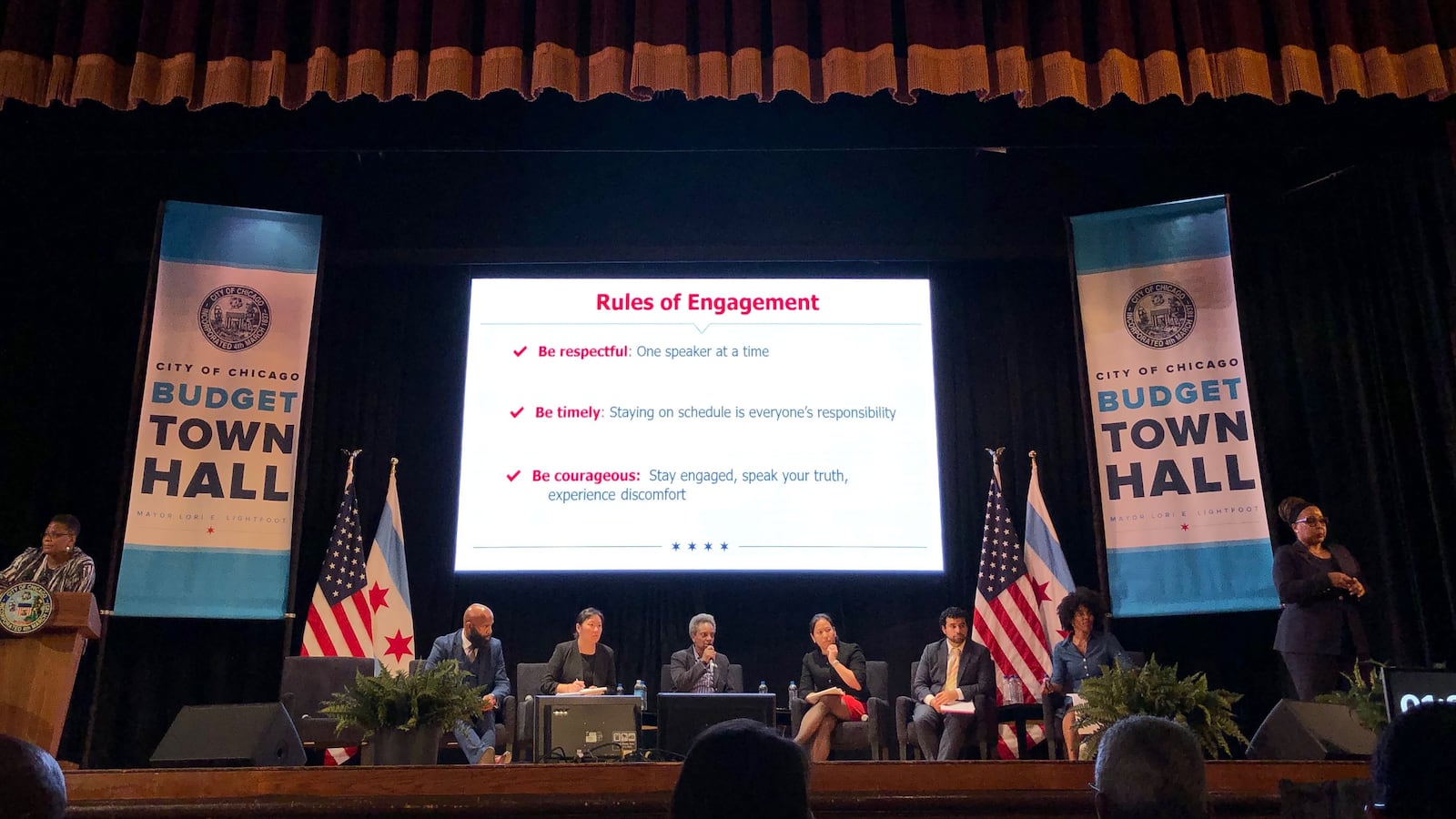Young people told Chicago Mayor Lori Lightfoot that they want to see more support for their schools and their teachers, at a meeting Wednesday night geared toward giving youth a chance to speak directly to the mayor.
The gathering was the last of four town hall meetings allowing Chicagoans to give input on the mayor’s $838 billion city budget proposal before she sends it to the City Council. Held at Lindblom Math and Science Academy, a selective enrollment high school in Englewood, the forum was also the first public event of the mayor’s 30-member youth advisory commission.
“Kids on the North Side have so much more opportunities to have SAT prep, test prep, than kids on the South Side,” said Doniya Boyd, an 11th grader who travelled up to 10 miles everyday from Englewood to attend the selective enrollment high school Jones College Prep. “We need to spread wealth evenly across the entire city of Chicago. My neighborhood schools do not have the same resources.”
Lightfoot, who was elected on a reform agenda that promised to tackle inequalities among neighborhoods, heartily agreed and promised change. “There is no one in the room that disagrees with one word you said,” Lightfoot told the packed school auditorium. “That is our critical mission.”
With Chicago teachers voting on authorizing a strike amid contentious contract negotiations with the city, teacher demands were front and center in many of the questions and statements.
“We need our teachers to be paid well so we don’t have to take breaks from school,” said Amina McKinney, a junior at Lindblom. “Our teachers are a very valuable part in our life. You wouldn’t be where you are sitting now, and I wouldn’t be where I am standing now without them.”
In response, the mayor agreed that teachers were very valuable — and that they were already paid very well. “Teachers in Chicago are paid some of the highest compensation of any school system in the country,” Lightfoot said.
Another student from Back of the Yards High School stressed the need for support staff.
”We, at Back of the Yards, have a social worker for the first time in the school,” he said. Referring to the city’s refusal so far to add those positions to the teachers contract, he asked, “Why haven’t your negotiators included social workers in the contract?”
In response, Lightfoot said he had been misinformed, and pointed out her investment in social workers in this year’s school budget.
Students also asked for action on lead in water, gentrification, safer public transit, and more public space for young people, who in recent weeks have been barred from several areas downtown.
Policing came up multiple times, with young people asking for police shootings to receive more investigation, for officers to undergo racial sensitivity training, and for less money altogether for police in the budget, each time eliciting roars of support from the crowd.
Many of the students’ demands echo requests by a group of progressive alderman who separately on Wednesday proposed the city direct more funds to affordable housing, public mental health clinics, and reparations to victims of police torture.
Mariam Aljuboory, a sophomore at Chicago Math and Science Academy in Mayfair and one of the newly appointed youth commissioners, said she was excited to have heard from so many young people. “I think we should do this more often. I got to hear a lot of other people’s problems and now I can take it into consideration,” Aljuboory said.
The event was empowering for Alondra Maltos, a junior at Lindblom, because it offered her a new way to have input in city governance. But it didn’t raise her opinion of the mayor, who Maltos said was curt in some of her responses and didn’t always respond directly to the questions asked.
“I have mixed feelings” after the event, Maltos said.

